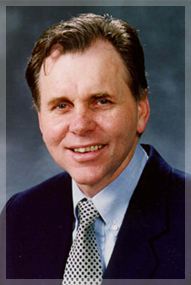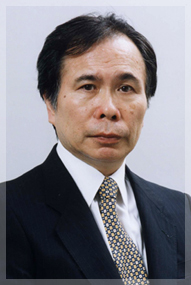The 2002 Keio Medical Science Prize Awardees
Barry Marshall

Clinical Professor, NHMRC Burnet Fellow
Department of Microbiology, The University of Western Australia
Reason for Selection
Theme: Isolation and cultivation of Helicobacter pylori
- pioneering work in diagnosis and treatment -
Dr. Barry Marshall isolated and cultured Helicobacter pylori for the first time ever in 1982. He reported that H. pylori colonization in the gastric mucosa plays an important role in the development of gastritis and peptic ulcer disease. He also revealed thorough clinical studies that H. pylori eradication can effectively prevent the recurrence of duodenal ulcers. His research showing that bacterial infection induces peptic ulcers produced a radical shift in conventional thinking. Dr. Marshall also established novel techniques for diagnosing H. pylori infection. The discovery of this bacterium by Dr. Marshall has triggered numerous medical and scientific developments; for example, recent reports have suggested an association between H. pylori infection and gastric cancer, gastric MALT lymphoma, chronic urticaria, and idiopathic thrombocytopenic purpura (ITP), etc. His further research activities and insights are greatly anticipated.
Background
- <Education>
- 1974
- Bachelor of Medicine and Bachelor of Surgery(MBBS),
The University of Western Australia - 1983
- Fellow of Royal Australian College of Physicians(FRACP)
- 1985-1986
- NH&MRC Research Fellow, Clinical assistant(research),
Gastroenterology department, Royal Perth Hospital - 1986
- Member of the Australian Gastroenterological Society
- 1988
- Fellow American College of Gastroenterology
<Academic Position>
- 1985-1986
- Clinical assistant(research), Gastroenterology Department, Royal Perth Hospital
- 1986-1987
- Research Fellow in Medicine, Division of Gastroenterology, University of Virginia
- 1988-1992
- Assistant Professor of Medicine, University of Virginia
- 1992
- Associate Professor of Medicine, University of Virginia
- 1993
- Professor of Medicine with Tenure, University of Virginia
- 1993-1996
- Clinical Professor University of Virginia, Private Consulting
- 1996-2007
- Professor of Research in Internal Medicine, University of Virginia
- 1997
- Hon Research Fellow in Gastroenterology, Sir Charles Gairdner Hospital
- 1997
- Clinical Professor of Medicine, The University of Western Australia
- 1998-2002
- NHMRC Burnet Fellow, Clinical Professor of Microbiology, The University of Western Australia
Koichi Tanaka

Professor, Department of Transplantation and Immunology
Graduate School of Medicine, Kyoto University
Reason for Selection
Theme: Establishment and development of the living-donor liver transplantation system
Dr. Koichi Tanaka developed and established the living-donor liver transplantation system, which has became a standard treatment for liver failure in Japan, where domestic social conditions are unfavorable for transplantations from brain-dead donors. With continuous creative efforts to advance the transplantation technique and perioperative management, he has dedicated his career to the development of organ transplantation in Japan. He has also played a leading role in the worldwide dissemination of this technique and in education programs related to living-donor transplantations, and his achievements are globally appreciated. To date, Dr. Tanaka has performed over 1000 living-donor liver transplantations, 831 of which were performed at Kyoto University. This number proves him to be one of the most experienced surgeons in the world. As donor-organ shortages continue to lead to the loss of lives, even in Western countries where liver transplantation from brain-dead donors is more accepted and more frequently performed, high hopes are placed on the further activities of Dr. Tanaka as a clinician and a researcher.
Background
- <Education>
- 1966
- Medical School; Faculty of Medicine Kyoto University
<Academic Positions>
- 1966-1968
- Kyoto University Hospital
- 1968-1975
- Shimane Pref. Hospital
- 1975-1995
- Surgeon, Junior Associate, Senior Associate Professor, Assistant Professor, the Second Department of Surgery, Kyoto University Hospital
- 1995-
- Professor and Director, Department of Transplantation and Immunology, Kyoto University Hospital
- 2001-
- President of Kyoto University Hospital
